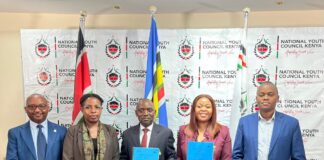The East African Community (EAC) resolution to make Kiswahili an official language of the bloc, alongside English, has been adopted by Uganda.
The Ugandan Cabinet agreed on Monday to carry out the directive issued during the 21st EAC extraordinary summit in Dar es Salaam in February 2021.
During the summit, heads of state amended Article 137 of the EAC Treaty to include the lingua franca as an alternate language for conducting official EAC business.
This move is likely to put an end to the old joke that “Kiswahili was born in Zanzibar, grew up in mainland Tanzania, became ill in Kenya, died in Uganda, and was buried in the Democratic Republic of the Congo.”
In February this year, the African Union adopted Kiswahili as one of its official working languages, three months after the United Nations Educational, Scientific and Cultural Organization (Unesco) designated July 7 as World Kiswahili Language Day.
It’s already a national and official language in Kenya and Tanzania and one of four national languages in DRC, the latest EAC member state. It is also spoken by nearly 50 and 70 per cent of the general public in Rwanda and Burundi, respectively.
A product of the fusion of Bantu and Arabic dialects, Kiswahili is not only recognised as a unifying language spoken by East Africans but it is rich in dialect and expression.
The language is used for social interaction and trade in many urban centres in EAC member states.
Kampala’s decision comes almost five years after the EAC Council of Ministers directed partner states to formulate national Kiswahili language policies and enhance the use of the language in official domains.



















